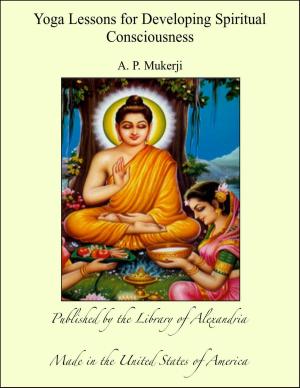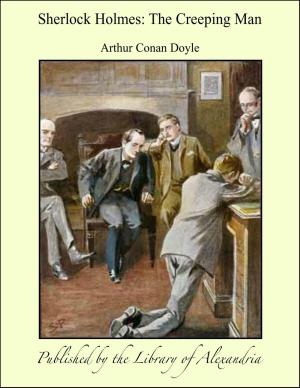An Interpretation of Rudolf Eucken's Philosophy
Nonfiction, Religion & Spirituality, New Age, History, Fiction & Literature| Author: | William Tudor Jones | ISBN: | 9781465585684 |
| Publisher: | Library of Alexandria | Publication: | March 8, 2015 |
| Imprint: | Language: | English |
| Author: | William Tudor Jones |
| ISBN: | 9781465585684 |
| Publisher: | Library of Alexandria |
| Publication: | March 8, 2015 |
| Imprint: | |
| Language: | English |
The personality and works of Professor Rudolf Eucken are at the present day exercising such a deep influence the world over that a volume by one of his old pupils, which attempts to interpret his teaching, should prove of assistance. It is hoped that the essentials of Eucken's teaching are presented in this book, in a form which is as simple as the subject-matter allows, and which will not necessitate the reader unlearning anything when he comes to the author's most important works. The whole of the work is expository; and an attempt has been made in the footnotes to point out aspects similar to those of Eucken's in English and German Philosophy. It is encouraging to find at the present day so much interest in religious idealism, and it is proved by Eucken beyond the possibility of doubt that without some form of such idealism no individual or nation can realise its deepest potencies. But with the presence of such idealism as a conviction in the mind and life, history teaches us that the seemingly impossible is partially realised, and that a new depth of life is reached. All this does not mean that the individual is to slacken his interests or to lose his affection for the material aspects of life; but it does mean that the things which appertain to life have different values, and that it is of the utmost importance to judge them all from the highest conceivable standpoint—the standpoint of spiritual life. This is Eucken's distinctive message to-day. The message shows that an actual evolution of spirit is taking place in the life of the individual and of human society; and that this evolution can be guided by means of the concentration of the whole being upon the reality of the norms and standards which present themselves in the lives of individuals and of nations. No one particular science or philosophy is able to grant us this central standpoint for viewing the field of knowledge and the meaning of life. The answer to the complexity of the problem of existence is to be found in something which gathers up under a larger and more significant meaning the results of knowledge and life. This volume will attempt to elucidate this all-important point of view—a point of view which is so needful in our days of specialisation and of material interests. It may be, and Eucken and his followers believe it is, that the destiny of the nations of the world depends in the last resort upon a conception and conviction of the reality of a life deeper than that of sense or intellect, although both these may become tributaries (and not hindrances) to such a spiritual life.
The personality and works of Professor Rudolf Eucken are at the present day exercising such a deep influence the world over that a volume by one of his old pupils, which attempts to interpret his teaching, should prove of assistance. It is hoped that the essentials of Eucken's teaching are presented in this book, in a form which is as simple as the subject-matter allows, and which will not necessitate the reader unlearning anything when he comes to the author's most important works. The whole of the work is expository; and an attempt has been made in the footnotes to point out aspects similar to those of Eucken's in English and German Philosophy. It is encouraging to find at the present day so much interest in religious idealism, and it is proved by Eucken beyond the possibility of doubt that without some form of such idealism no individual or nation can realise its deepest potencies. But with the presence of such idealism as a conviction in the mind and life, history teaches us that the seemingly impossible is partially realised, and that a new depth of life is reached. All this does not mean that the individual is to slacken his interests or to lose his affection for the material aspects of life; but it does mean that the things which appertain to life have different values, and that it is of the utmost importance to judge them all from the highest conceivable standpoint—the standpoint of spiritual life. This is Eucken's distinctive message to-day. The message shows that an actual evolution of spirit is taking place in the life of the individual and of human society; and that this evolution can be guided by means of the concentration of the whole being upon the reality of the norms and standards which present themselves in the lives of individuals and of nations. No one particular science or philosophy is able to grant us this central standpoint for viewing the field of knowledge and the meaning of life. The answer to the complexity of the problem of existence is to be found in something which gathers up under a larger and more significant meaning the results of knowledge and life. This volume will attempt to elucidate this all-important point of view—a point of view which is so needful in our days of specialisation and of material interests. It may be, and Eucken and his followers believe it is, that the destiny of the nations of the world depends in the last resort upon a conception and conviction of the reality of a life deeper than that of sense or intellect, although both these may become tributaries (and not hindrances) to such a spiritual life.















